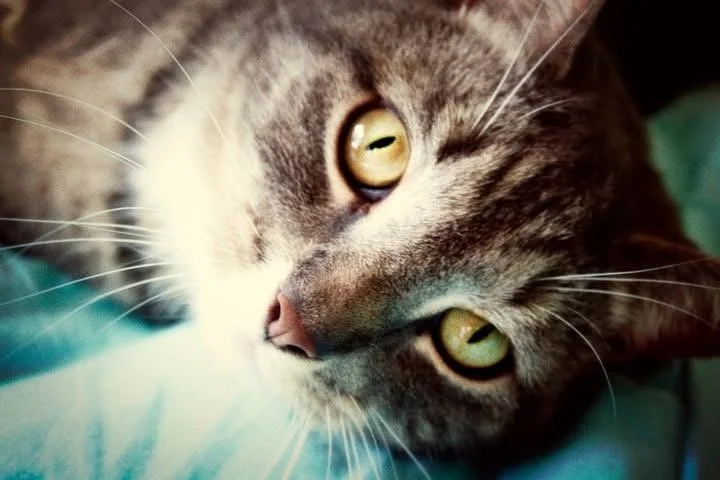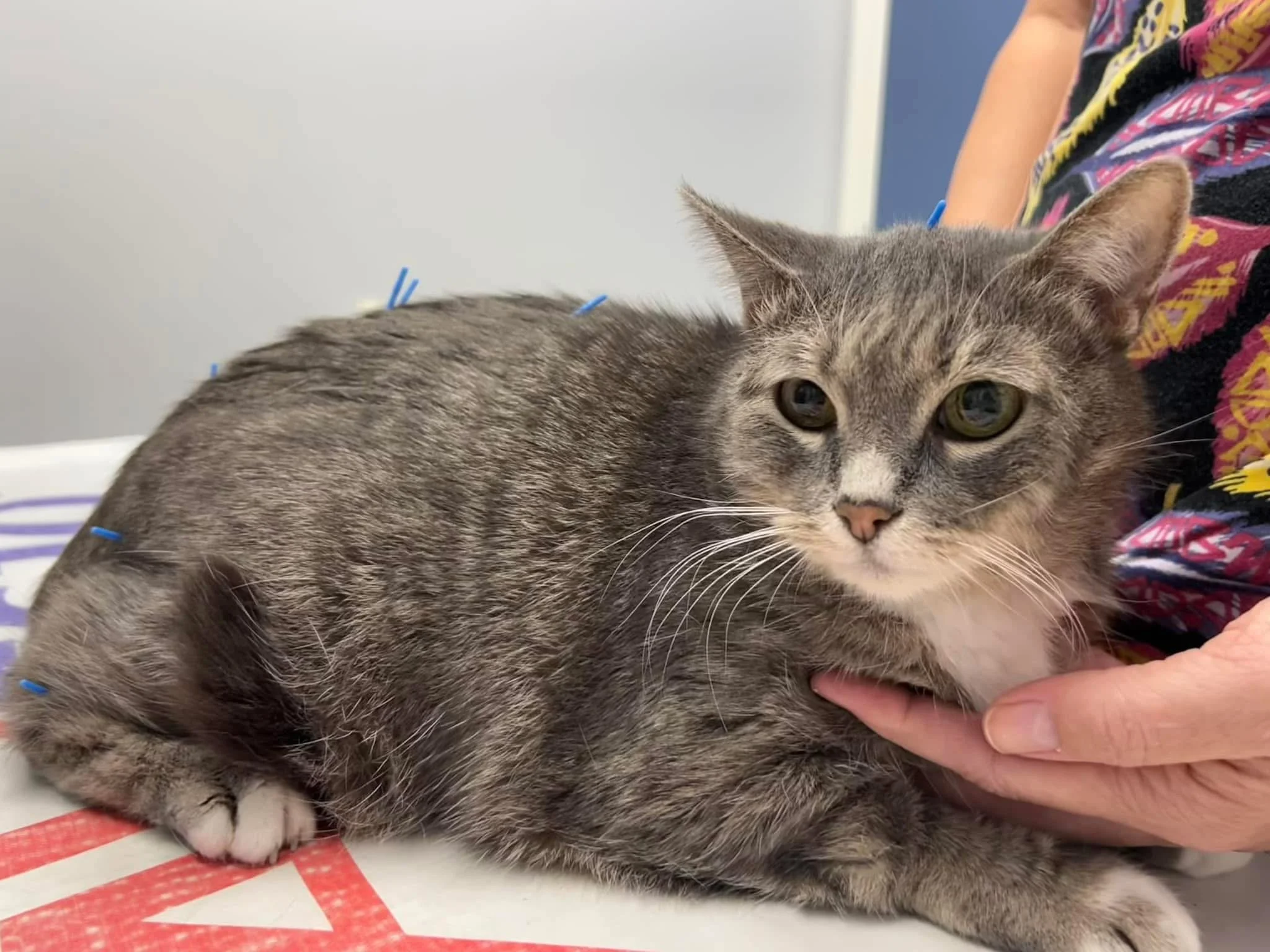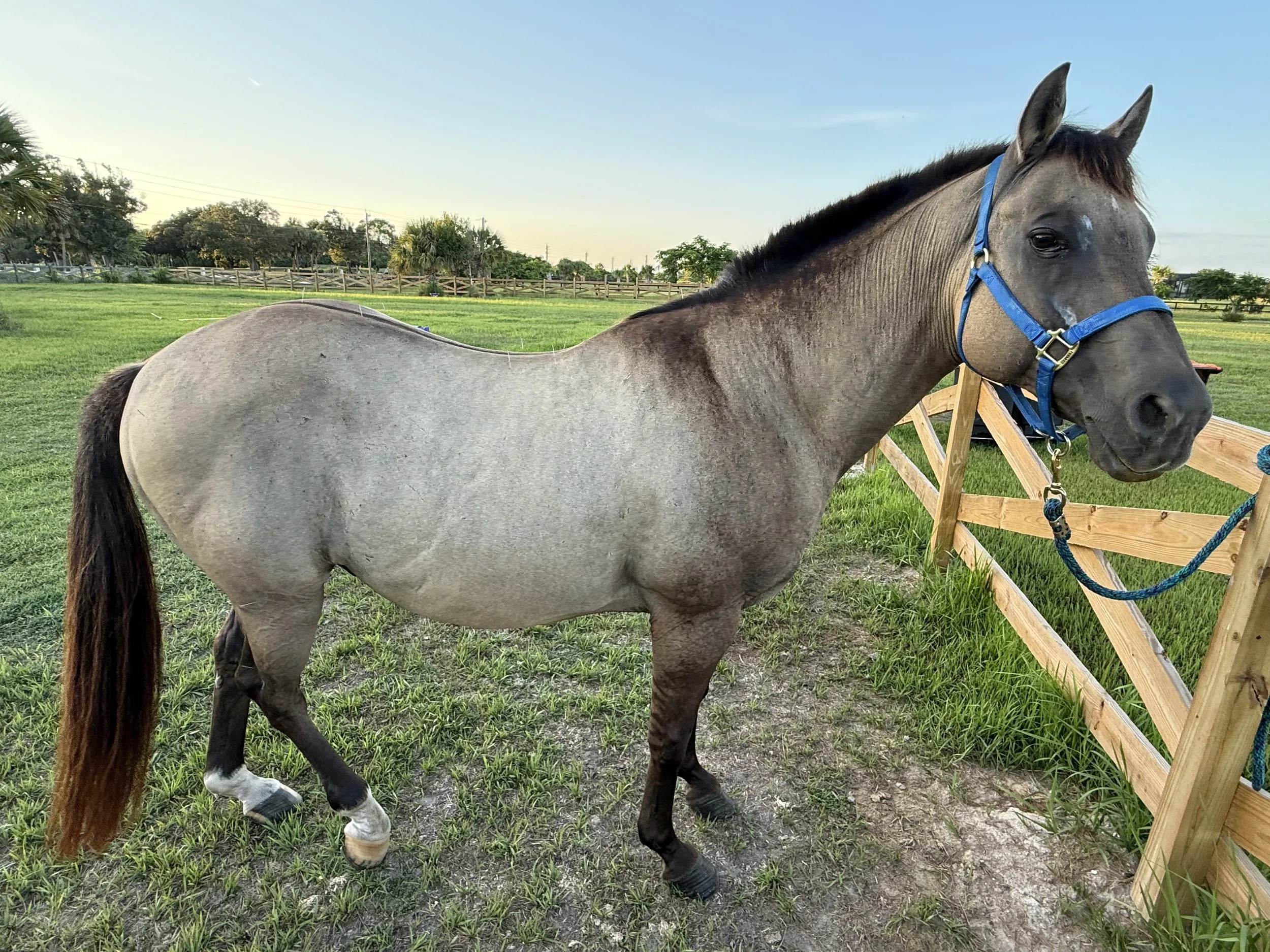
-
Acupuncture is a traditional Chinese medical practice that involves inserting thin needles into specific locations or points on the body to stimulate & restore the flow of qi, or life energy. It's most commonly used for pain relief, but can be used to help many different conditions & may be part of a broader approach to health & wellness. A more scientific explanation is the insertion of needles stimulates the bodies nerves, muscles, chemical pathways & improves blood flow, which triggers the body to heal itself. Acupuncture offers a safe & complimentary therapy to western medicine. Other acupuncture techniques include electroacupuncture, acupuncture, acupressure, moxibustion, gua-sha & Tun-nai.
Electroacupuncture is a form of acupuncture that uses electrical stimulation applied to the needles to enhance pain relief & other therapeutic effects of acupuncture.
Aquapuncture is a modified technique of acupuncture, where liquid, typically vitamin B 12 & saline, is injected into a acupoint. This technique is used to stimulate acupoints for a longer duration than a needle.
Acupresure is when digital pressuring is applied to an acupoint as a means to stimulate the point.
Moxibustion is traditionally Chinese technique of burning a dried herb (typically mugwort) over a acupoint order to stimulate the point. Moxa has many health benefits including improved circulation.
Gua-sha is a traditional Chinese technique where a smooth-edged tool is used to scrape the skin in-order to promote circulation, reduce pain & improve health.
Tu-nai is a Chinese massage technique that uses pressing, rubbing, kneading, & stretching to help restore balance and energy flow within the body.
-
Veterinary medical manipulation (VMM), often referred to as animal chiropractic, is a manual therapy used to assess & treat joint restrictions which can have deleterious effects a pet’s musculoskeletal, nervous & immune systems. During a VMM evaluation, Dr. Walsh starts with a detailed conversation of the pets healthy & thoroughly examines the pets stance & gait. The pet is then palpated using a technique called motion palpation, which helps identify restrictions within the skeletal system. A controlled adjustments is then applied to the restricted joint to correct the restricted movement. Correcting restrictions restores the normal range of motion, improves circulation, nerve function, & immune system performance.
-
Traditional veterinary Chinese herbal medicine uses plants, food, & other supplementation to restore balance & address imbalances in an animal's system. TCVM herbal medicine focuses on identifying & treating underlying patterns of imbalance rather than just symptoms. Chinese herbal formulas are often administered in combination with Western medicine & complement conventional treatments.
While many herbal formulas are typically safe, some can have side effects or interact with medications. It is important to consult with your veterinarian about your pet’s health before starting an herbal remedy. Dr. Walsh uses one reputable herb formulas with ethical sourced ingredients that follow strict guidelines & quality control for manufacturing their products.
-
Laser therapy is the application of specific light frequencies & spectrums to tissue, which then promotes healing. Light therapy works through a process called photobiomodulation where photons from red, blue and/or infrared light are used to stimulate cellular activity. These photons are absorbed by molecules in the cells, particularly mitochondria, leading to increased energy production (ATP), which improves cell signaling, blood flow to the area & reduces oxidative stress.
Laser therpay has been shown to have various therapeutic benefits, including pain relief, reduced inflammation, faster wound healing, antimicrobial activity & improved tissue regeneration.
Photobiomodulation can be delivered using various light sources, including LEDs & Class 3 or Class 4 lasers . The type of light source & the specific wavelengths used are determined by treatment's goal & application locations.
Laser therapy is generally considered safe, especially when performed by qualified professionals using the right laser for the individual's condition. Class 4 lasers require eye protection when being used.
-
Targeted Pulsed Electromagnetic Field therapy (tPEMF) is a non-invasive treatment that uses low-level electromagnetic fields to stimulate cellular repair & reduce inflammation. It works by delivering gentle pulses of energy to tissues, which can help activate the body's natural anti-inflammatory response & speed up the healing process.
tPEMF therapy can help with pain reduction, inflammation reduction, stress reduction, & improvement in circulation, energy, & range of motion. It can be used for conditions like post-operative pain, arthritis, tendon/ligament damage, soft tissue trauma, bone union/growth, IVDD, wound management & anxiety.
tPEMF is generally considered safe for most patients, including pregnant & senior pets.
Some examples of tPEMF devices in veterinary medicine include the Assisi LOOP, LOOP Lounge, DentaLOOP, Calmer Canine, EquiLOOP & MAGNA Wave.
-
Shockwave therapy is a non-invasive treatment that uses high-energy sound waves to stimulate healing in injured tissues. The shockwaves penetrate deep into muscles, tendons, ligaments, and bones, promoting increased blood flow, cell regeneration, and the release of natural growth factors. This accelerates tissue repair, reduces pain, and enhances mobility.
The PulseVet system is widely used in veterinary medicine, especially for horses, dogs, and other animals..
Common conditions treated with PulseVet shockwave therapy include:
Tendon and ligament injuries
Joint disorders and osteoarthritis
Back pain
Bone injuries such as stress fractures, delayed healing fractures, or improving healing post op orthopedic surgeries such as TPLO for cruciate tears
Wound healing and chronic soft tissue injuries
-
Veterinary rehabilitation therapy uses therapeutic exercises, massage, heat, cold, TENS, ultrasound, laser, hydrotherapy) to improve a pet's mobility and reduce pain.
-
End-of-life care for animals, also known as veterinary hospice or palliative care, focuses on providing comfort & quality of life for terminally ill or senior pets until they die naturally or euthanasia is chosen. Providing care in the pet's familiar environment, can be less stressful for the pet. End-of-life care also provides support for the pet owner, helping them navigate difficult decisions & cope with the passing of a pet.
The decision for euthanasia is often considered when an animal's quality of life significantly declines due to age, illness, or injury, & when there is no reasonable expectation of improvement.
In-home pet euthanasia offers several benefits, including reducing stress for the pet by allowing them to pass in a familiar & comfortable environment. It also provides owners with more privacy & control during a difficult time, as well as the opportunity to create a meaningful & personalized goodbye. Additionally, in-home euthanasia eliminates the need for transportation of the pet, which minimizing stress for patients who may be uncomfortable or have mobility issues. While we believe in-home euthanasia is a peaceful way for our loved furry family to cross the rainbow bridge, there are certain situations that arise, such an acute medical crisis, where a planned in-home euthanasia is not a timely enough option to relieve suffering & a dying pet should be seen in a traditional setting.
For existing patients that we can make accommodations for an in-home euthanasia, we offer transport of the pet’s remains to a local, trusted, family owned crematorium. The pet owner is able to select from a variety of cremation options & memorable keepsakes to honor their beloved pet.
-
Acupuncture is a traditional Chinese medical practice that involves inserting thin needles into specific locations or points on the body to stimulate & restore the flow of qi, or life energy. It's most commonly used for pain relief, but can be used to help many different conditions & may be part of a broader approach to health & wellness. A more scientific explanation is the insertion of needles stimulates the bodies nerves, muscles, chemical pathways & improves blood flow, which triggers the body to heal itself. Acupuncture offers a safe & complimentary therapy to western medicine. Other acupuncture techniques include electroacupuncture, acupuncture, acupressure, moxibustion, gua-sha & Tun-nai.
Electroacupuncture is a form of acupuncture that uses electrical stimulation applied to the needles to enhance pain relief & other therapeutic effects of acupuncture.
Aquapuncture is a modified technique of acupuncture, where liquid, typically vitamin B 12 & saline, is injected into a acupoint. This technique is used to stimulate acupoints for a longer duration than a needle.
Acupresure is when digital pressuring is applied to an acupoint as a means to stimulate the point.
Moxibustion is traditionally Chinese technique of burning a dried herb (typically mugwort) over a acupoint order to stimulate the point. Moxa has many health benefits including improved circulation.
Gua-sha is a traditional Chinese technique where a smooth-edged tool is used to scrape the skin in-order to promote circulation, reduce pain & improve health.
Tu-nai is a Chinese massage technique that uses pressing, rubbing, kneading, & stretching to help restore balance and energy flow within the body.
-
Traditional veterinary Chinese herbal medicine uses plants, food, & other supplementation to restore balance & address imbalances in an animal's system. TCVM herbal medicine focuses on identifying & treating underlying patterns of imbalance rather than just symptoms. Chinese herbal formulas are often administered in combination with Western medicine & complement conventional treatments.
While many herbal formulas are typically safe, some can have side effects or interact with medications. It is important to consult with your veterinarian about your pet’s health before starting an herbal remedy. Dr. Walsh uses one reputable herb formulas with ethical sourced ingredients that follow strict guidelines & quality control for manufacturing their products.
-
Shockwave therapy is a non-invasive treatment that uses high-energy sound waves to stimulate healing in injured tissues. The shockwaves penetrate deep into muscles, tendons, ligaments, and bones, promoting increased blood flow, cell regeneration, and the release of natural growth factors. This accelerates tissue repair, reduces pain, and enhances mobility.
The PulseVet system is widely used in veterinary medicine, especially for horses, dogs, and other animals..
Common conditions treated with PulseVet shockwave therapy include:
Tendon and ligament injuries (e.g., suspensory ligament desmitis, tendonitis)
Joint disorders and osteoarthritis
Back pain (e.g., kissing spines, muscle soreness)
Bone injuries such as stress fractures or delayed healing fractures
Wound healing and chronic soft tissue injuries
-
Targeted Pulsed Electromagnetic Field therapy (tPEMF) is a non-invasive treatment that uses low-level electromagnetic fields to stimulate cellular repair & reduce inflammation. It works by delivering gentle pulses of energy to tissues, which can help activate the body's natural anti-inflammatory response & speed up the healing process.
tPEMF therapy can help with pain reduction, inflammation reduction, stress reduction, & improvement in circulation, energy, & range of motion. It can be used for conditions like post-operative pain, arthritis, tendon/ligament damage, soft tissue trauma, bone union/growth, IVDD, wound management & anxiety.
tPEMF is generally considered safe for most patients, including pregnant & senior pets.
Some examples of tPEMF devices in veterinary medicine include the Assisi LOOP, LOOP Lounge, DentaLOOP, Calmer Canine, EquiLOOP & MAGNA Wave.
-
Laser therapy is the application of specific light frequencies & spectrums to tissue, which then promotes healing. Light therapy works through a process called photobiomodulation where photons from red, blue and/or infrared light are used to stimulate cellular activity. These photons are absorbed by molecules in the cells, particularly mitochondria, leading to increased energy production (ATP), which improves cell signaling, blood flow to the area & reduces oxidative stress.
Laser therpay has been shown to have various therapeutic benefits, including pain relief, reduced inflammation, faster wound healing, antimicrobial activity & improved tissue regeneration.
Photobiomodulation can be delivered using various light sources, including LEDs & Class 3 or Class 4 lasers . The type of light source & the specific wavelengths used are determined by treatment's goal & application locations.
Laser therapy is generally considered safe, especially when performed by qualified professionals using the right laser for the individual's condition. Class 4 lasers require eye protection when being used.







